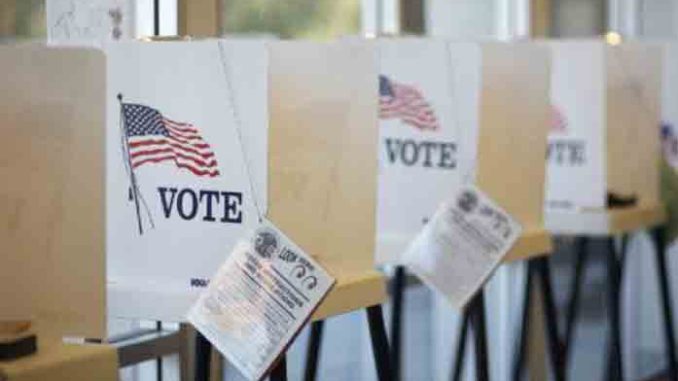
President Thomas Jefferson said “the Revolution of 1800” was even more important than that of 1776 since the 1800 U.S. presidential and congressional elections marked the first time a nation held free and fair elections in which the ruling party lost but still let the winning opposition party take power with no violence. Every two years since then, with both our federal and state governments, we Americans have had a peaceful revolution of ballots instead of bullets.
We have again shown the world how a free and democratic people can wage a long, fiercely argued debate on the major public policy issues of the day but still conclude it with legitimate elections in which each citizen gets to vote, and both sides abide by the outcome without a single shot fired. This is another remarkable victory of Judeo-Christian civilization and Western liberal democracy that so many nations have never known.
To those whose candidates or party won, this is a time for rejoicing with the realization it is the duty of all citizens to monitor the public conduct of elected leaders to make sure they honor their promises and, most importantly, obey our Constitution. It is no time to treat those whose candidates lost in any way you would not want to be treated.
To those whose candidates lost, as the Bible says more than anything else, “Fear not.” Realize your side made its case and influenced a great many people. Indeed, your candidates’ campaigns may well have planted potent seeds that will flower to victory in future elections. Furthermore, America’s wise and wonderful Founding Fathers devised such a splendid system of constitutional separation of powers coupled with many checks and balances that none of the three branches of our federal or state governments can do anything without the ultimate consent of the other two.
Thus, combined with elections every two years, our constitutional system has proved to be remarkably self-correcting.
For all the hurt feelings out there, know our countrymen have weathered light years’ worse travails: the American Revolution, slavery, the War Between the States, Jim Crow, terrible depressions, two world wars, the Cold War, and still more wars in Korea, Vietnam, Iraq, and Afghanistan. Despite our differences, we have repeatedly proven that, when unified in a great effort, we as a people can triumph over many a fierce foe. Indeed, to paraphrase William Faulkner, the UNITED States “will not merely endure [but] prevail.”
My travels in China this century have further reassured me about man’s resilience. From 1949 to 1976, the Chinese endured a 27-year totalitarian communist dictatorship which caused the deaths of perhaps 65 million people through famine and execution. Perhaps never before or since have so many innocent people suffered on such a grand scale due to political tyranny.
Yet, since Mao Zedong’s 1976 death, the Chinese have created a comparative renaissance providing them with unprecedented freedom, opportunity, prosperity, and education. In record time, China has gone from being one of the world’s poorest nations to having an economy second only to ours. If the Chinese can recover so quickly from the horrific destruction of Chairman Mao, surely we Americans can recover from whatever mistakes our leaders make.
Do not allow your emotional well-being to be hijacked by politicians and propagandists who will never even see you. Our world runs from our right ear all the way to our left ear. So don’t choose to obsess about negative matters we cannot control.
And we Americans are still blessed to live in the most free, democratic, equal rights-respecting, opportunity-rich, prosperous, and powerful nation in the history of God’s green globe. For all our differences, we Americans enjoy far more in common than we acknowledge.
So, instead of reflexively castigating the winners or losers in the recent elections, let us obey Christ’s Golden Rule to “Do unto others as you would have them do unto you” and reaffirm our commitment to fulfill President Kennedy’s call to “ask not what your country can do for you — ask what you can do for your country.”
May God continue to bless America and may we labor to always be worthy of His many blessings.
Dr. Douglas Young is a retired political science professor at the University of North Georgia.
